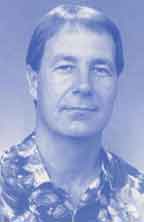News
Plymouth's spirit of discovery in the war against ATM crime
In the latest installment of 'On the High Road,' Mike Lee of the ATM Industry Association reports on several British companies that will showcase their ATM security innovations at the upcoming ATM Sec 2001 show in London.
May 22, 2001

Mike Lee is executive director of the ATM Industry Association, and is based in London.
Plymouth, England, is where the Mayflower set sail in 1620 with the Pilgrim Fathers on board and where Sir Francis Drake calmly completed a game of bowls before setting off to defeat the daunting Spanish Armada advancing toward the English coast. An almost swashbuckling sense of adventure is closely associated with the place.
So it is no surprise that the motto of the city of Plymouth is "Spirit of Discovery."
Recently I visited Spinnaker International's headquarters and factory there to look at their use of smart technology in the war against ATM crime. During the three-hour train journey, through the endless rolling green hills of the Southwest, I again experienced how travel makes the world smaller while providing some rare time to think and philosophize.
So, with time to kill on the train journey, I asked myself: have ATMs made the world a smaller or, even a better, place?
The Pilgrim Fathers helped found the New World. Drake fought the Armada and also circumnavigated the globe. What qualities were needed to make these world-changing events, that began in Plymouth, take place? A spirit of adventure, of idealism, of courage, of calmness in the face of big threats, of discovery.
As I tried to answer my question on the train, I found that these qualities historically associated with Plymouth come into play in the analysis of the ATM's impact on the world.
For there is an Armada advancing toward the industry. It is called ATM crime.
And that is why I had come to Spinnaker, a company represented in 30 countries. Its founder, Chairman John Yandell, is himself a passionate sailor in that great Devon tradition, which explains the company logo with its white spinnaker opened against a bright red sun.
Spinnaker is one of the many innovative companies in ATM security that uses smart technologies and methodologies to do battle against sophisticated criminals all over the world who target cash bound for, or stored in, ATM machines. Spinnaker preaches being "secure in innovation," true to the city motto encouraging a spirit of discovery.
But before we look at the war on ATM cash supplies, the question on the train to Plymouth needs to be answered: have ATMs made the world a smaller and better place?
It's a small world after all
A smaller world is one where distances between places seem to shrink because of advances in communications and transport technology, creating a world of increasing interconnectedness. A smaller world is one where people not only access faraway places more easily but where they recognize familiar cultural icons that make a strange place seem a bit less unknown or foreign.
That icon could be a McDonald's hamburger, a can of Coke, a cappuccino, Time magazine, a movie on the international circuit, a book everyone is reading -- but could it also be a cash machine! Cash is the universal currency that enables us to buy the burger, drink the Coke or watch the movie.
The ATM is a global cultural icon because it has liberated people from the fuss of acquiring cash from a real live teller during normal banking hours and enabled them to use banking technology themselves with a satisfying comfort level. This freedom of movement and of access to one's own banked cash has been extended to direct dispensing of foreign currency, cutting out the need for money changers or bureaux de change.
A new Barclaycard customer information pamphlet I got in the post this week states: "Cash, any time, day or night -- 23 000 VISA/MasterCard linked ATMs in the UK and 531,000 ATMs worldwide give you access to cash, in sterling or local currency anytime day or night. To find your nearest ATM, just call our ATM locator Line on 0800-400-100."
Incidentally, there is typically a foreign exchange charge of 2.75 percent on the ATM withdrawal of foreign currency.
To mark the emergence of the ATM as an international icon and reflect its status in today's culture, the ATM Industry Association is hosting a competition to find the best design of an ATM pictogram to be patented for instant recognition around the world. Emailmikelee@atmiaeurope.comto take part. The deadline is end of July.
So, the ATM's direct dispensing of cash into the hands of bank customers whenever they want it has helped make the world a smaller place, one that has a greater feel of familiarity to it even in new and foreign places. But has the ATM made the world a better place?
ATMs a target
That Barclaycard pamphlet was primarily focused on ensuring the security of customers' PIN numbers, getting them to protect their PINs by never writing them down or letting unauthorized persons know them. And that brings me to a crucial aspect of answering the question on the train and to the reason why I went to Plymouth: ATM security. Security against fraud, robbery and attack. Just how secure is the ATM industry?
We know that sophisticated hackers, fraudsters and organized crime gangs are targeting the cash supply to ATMs and the cash stored in them. Bazookas, limpet mines and rocket launchers are part of the weaponry used by organized gangs in some countries in this assault on the industry. Sir Francis Drake, finish your game of bowls, please, the Armada is advancing toward our coastline!
Metropolitan Police Services statistics for ATM attacks in the UK show that CiT (cash in transit) attacks quadrupled between 1991 and 2000, while attacks on bank ATMs doubled in 2000.
Last month, a large bank in Brazil was instructed by a civil court to pay compensation for moral and material damages to the family of an account holder shot dead during a raid inside an ATM kiosk back in 1995. Edson de Oliveira died from bullet wounds on Oct. 5, 1995, while withdrawing cash from an ATM. According to the judge, at the time the attack took place, the ATM kiosk door was broken.
In the same year, another account holder was killed in front of an ATM in Sao Paolo, Brazil. Djalma Américo Cardoso had broken his ATM card in order to avoid being robbed, which angered three assailants who were trying to rob him. Account holders are not the only victims of ATM crime; security guards, too, are known to have been killed or wounded.
To ensure that ATMs continue to make the world a freer and a better place, it is vital for the ATM industry to defeat the Armada of ATM crime. The ATM Industry must now, more than ever, display a spirit of discovery to defeat the ATM's biggest threat.
Getting better all the time
There are encouraging signs that Plymouth's spirit of adventure does exist in abundance in the ATM security and servicing industry. ATMIA is bringing together top security experts for its ATM security conference and exhibition in London on June 1, called simply "ATM Sec 2001," to thrash out a strategy and showcase the newest technologies and methodologies that can bring about this defeat of organized ATM crime. Find out more by visitinghttp://www.trademediagroup.com/security2001/
Back in Plymouth, Colin Mackenzie, managing director of Spinnaker, hosted my visit to their manufacturing center. Together with NCR, Spinnaker has developed revolutionary cash security solutions, based on smoke and dye technologies, that provide an end-to-end deterrent system to spoil and render useless any cash stolen from a CiT van, or during the cash replenishment operation or from the ATM itself. The technologies were first used to great effect by the Austrian Post Office.
NCR and Spinnaker will have a joint presentation and exhibition at "ATM Sec 2001" to look at intelligent cash security technology placed within a business efficiency model that provides invaluable cost savings. Pioneering practitioners of their smart cash-staining technology for end-to-end cash security in the UK areCashtec Services, based in Surrey.
Cashtec's Customer Services Director Jim Easton, like MacKenzie, is an ex-NCR man. Easton explained lucidly when I met him how armor cannot solve ATM crime but that a sufficiently high degree of deterrence is possible through a "brain rather than brawn" approach.
MacKenzie claims their technology is smart enough to create great uncertainty in the minds of the criminal fraternity about carrying out attacks effectively. "If you spoil the prize and create that uncertainty, you can migrate crime away from the ATMs and the cash supply," he says.
He believes it is possible that crime will eventually be migrated out of the ATM industry altogether, through effective, cost-efficient and innovative security solutions. There's that word again -- innovation, discovery, part of Plymouth's spirit of adventure.
A brand new futuristic water-based "forensic fingerprint" product will be launched to the ATM industry at ATM Sec 2001 bySmartWater.It's a product that was awarded Millennium Product status by England's Prime Minister Tony Blair.
The team of scientists at SmartWater wanted to increase pressure on thieves by developing a simple chemical coding system of identification which the criminal could not defeat. It a clear, water-based solution which is simply painted on. Each brushstroke contains millions of microscopic particles encoded with the owner's details. Like DNA profiling, anything -- or anyone -- with even just a trace of SmartWater can be identified and authenticated.
There are millions of combinations, each uniquely coded and licensed to an individual customer. Codes are held on a secure central database. When dry, SmartWater Instant is virtually undetectable under normal lighting. To detect if an item of property has been marked, the police use an ultraviolet light to conduct a simple on-site test to locate the unique SmartWater Identification Number (SIN).
Founding Director Phil Cleary says that already a hundred convictions have resulted from its use in the community, and no court case has been lost in which the technology was used as forensic evidence. It can now be applied to the ATM industry, through sprays and other ways of marking, to achieve the all-important ingredient of what Cleary calls "traceability."
Mike Silverman, head of international business at theForensic Science Service, which houses the world's largest DNA database with over one million samples, explains that it is possible to make synthetic DNA which could greatly assist in tracing stolen cash back to a specific ATM. "By analyzing synthetic DNA on stolen cash, we could show where that came from and build up an intelligence database to track down the modus operandi of criminals."
Silverman says it is also possible to have a DNA spray fitted over an ATM machine to spray the criminal with a unique DNA marker. Even tracing the escape route of the perpetrator in a stolen car would be possible. These kinds of intelligent, sophisticated innovations bring the dream of migrating crime out of the ATM industry a bit closer.
It also encourages me to answer my question in the train in the affirmative, that ATMs are making the world a better place. With such a strong spirit of discovery at work on providing cash security to ATMs, isn't it only a matter of time before our Armada out there is soundly defeated?
Anyone for a game of bowls?
Included In This Story
ATM Industry Association (ATMIA)
The ATM Industry Association, founded in 1997, is a global non-profit trade association with over 10,500 members in 65 countries. The membership base covers the full range of this worldwide industry comprising over 2.2 million installed ATMs.
 ChatGPT
ChatGPT Grok
Grok Perplexity
Perplexity Claude
Claude













